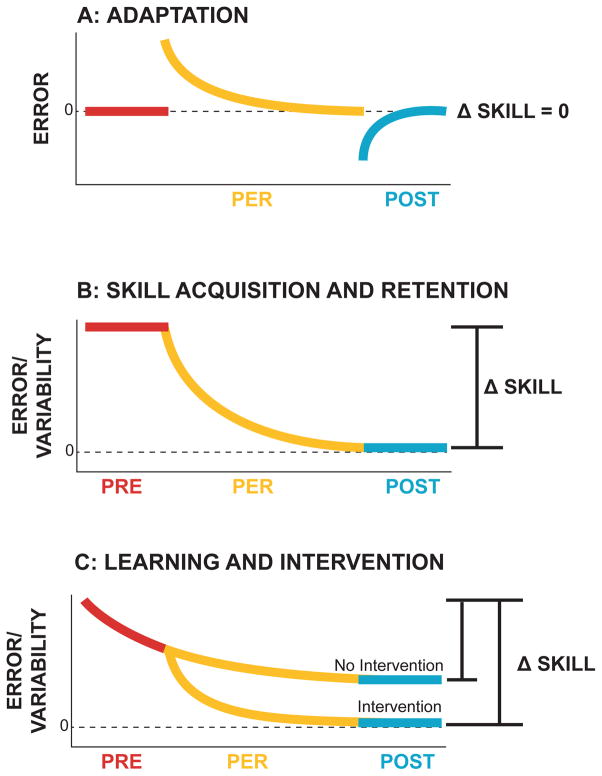Figure 1.
Behavioral change (Δ skill) in adaptation and skill acquisition. A: Adaptations to novel environmental or bodily conditions, such as wearing new shoes, starts with a behavior that is well-practiced, such as walking (pre-perturbation, error = 0). Wearing new hiking boots or high heels it usually only takes a short time to adapt the coordination pattern (per-perturbation, Δ skill ≠ 0). After changing back to the regular shoes, the walking pattern quickly returns to baseline behavior (post-perturbation, error = 0). For the baseline behavior, there is typically no gain in skill (Δ skill = 0). B: Skill learning, such as learning a new dance routine, starts with high levels of errors and variability (error ≫ 0). Consistent practice, with or without controlled conditions, such as detailed performance feedback, leads to a reduction of error and variability (Δ skill > 0). This is typically a much longer process and results in long-term retention of the skill (Δ skill ≈ 0). Riding a bicycle is a skill that is never forgotten. C: In sports coaching and therapeutic interventions, the goal is to aid and accelerate the process of reducing error and variability by including expert guidance, verbal feedback, clues, and technology-based assistance (Δ skill ≫ 0). The goal is to achieve long-lasting behavioral changes that should also generalize to other conditions.

